Vaginal hygiene is not only about washing. There are many factors that can change the microbial balance, like sexual activity, wearing synthetic underwear, or removing pubic hair.
Vaginal care is one of the factors in the prevention of vaginal discomforts. The intimate area has a specific microbial flora, where good bacteria (producing lactic acid) keep the balance with other bacteria. Micro-organisms living in our vaginas are sensitive to antibiotics, soap and other harsh chemicals. Good vaginal hygiene should preserve and support the good bacteria and will maintain the vaginal pH optimal for their growth. Since vaginal hygiene is usually a difficult topic, we have put down a list of guidelines that will help you take better care of your intimate area.
Washing your vagina
For good vaginal care, you could wash the intimate area once a day with lukewarm water or a mild (foam) solution which does not contain soap, perfume or colour, and which is specifically designed for use around the vagina.
More is not always better: washing more often than once a day or using soaps or shampoos can disrupt the balance of the vaginal flora. If no adequate intimate washing liquid is available, it’s better to use just water. If a shower or bath is not possible (camping, long journeys etc.), it is recommended to use intimate wipes which do not contain soaps, perfume or harsh chemicals.
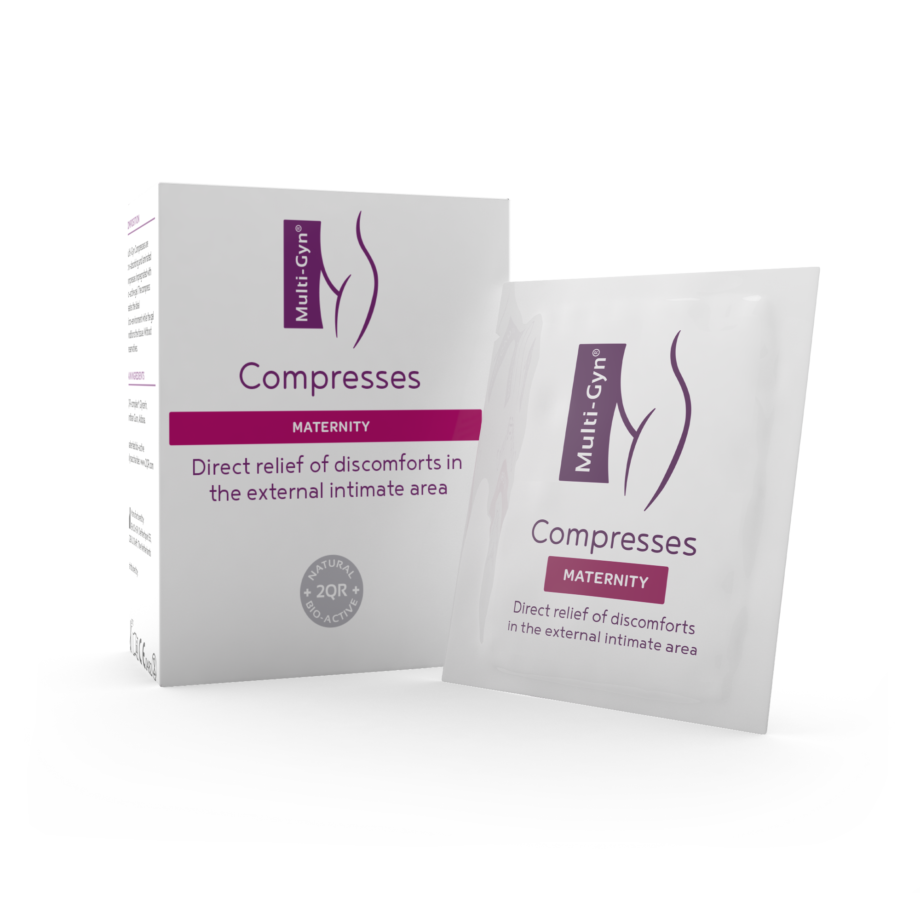
Multi-Gyn Compresses
Maternity. Soothing effect on the external intimate area
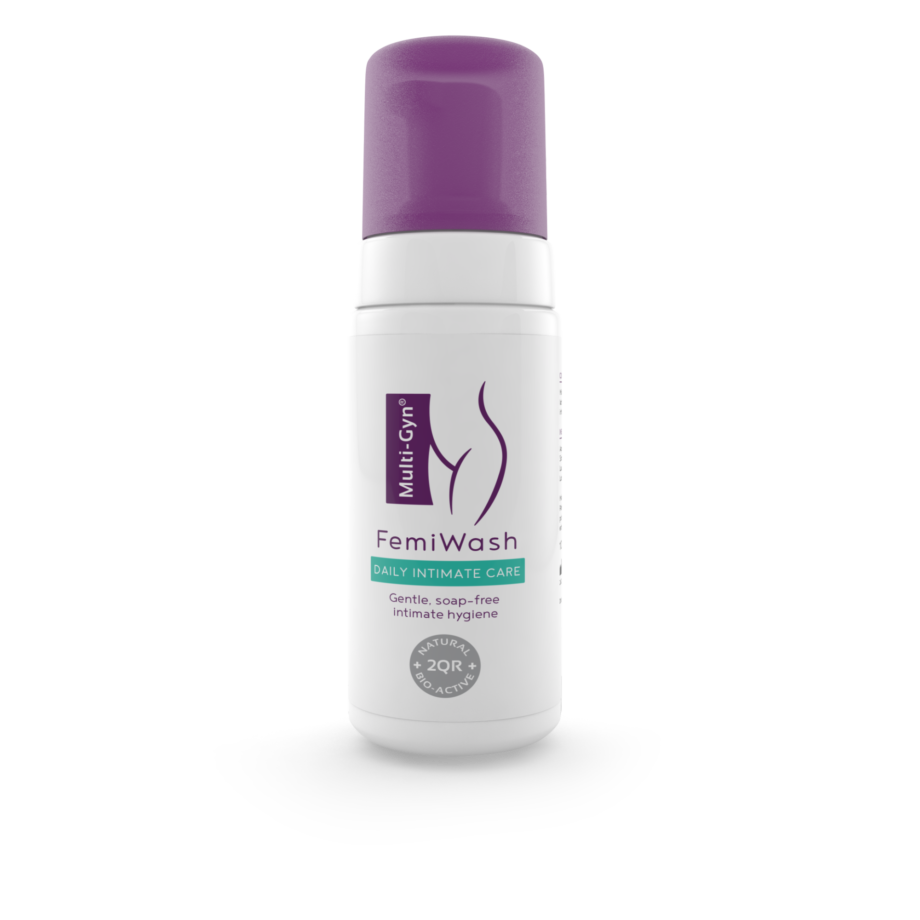
Multi-Gyn FemiWash
Gentle, soap-free intimate hygiene

Multi-Gyn IntiSkin
Soothes irritations of the intimate skin area
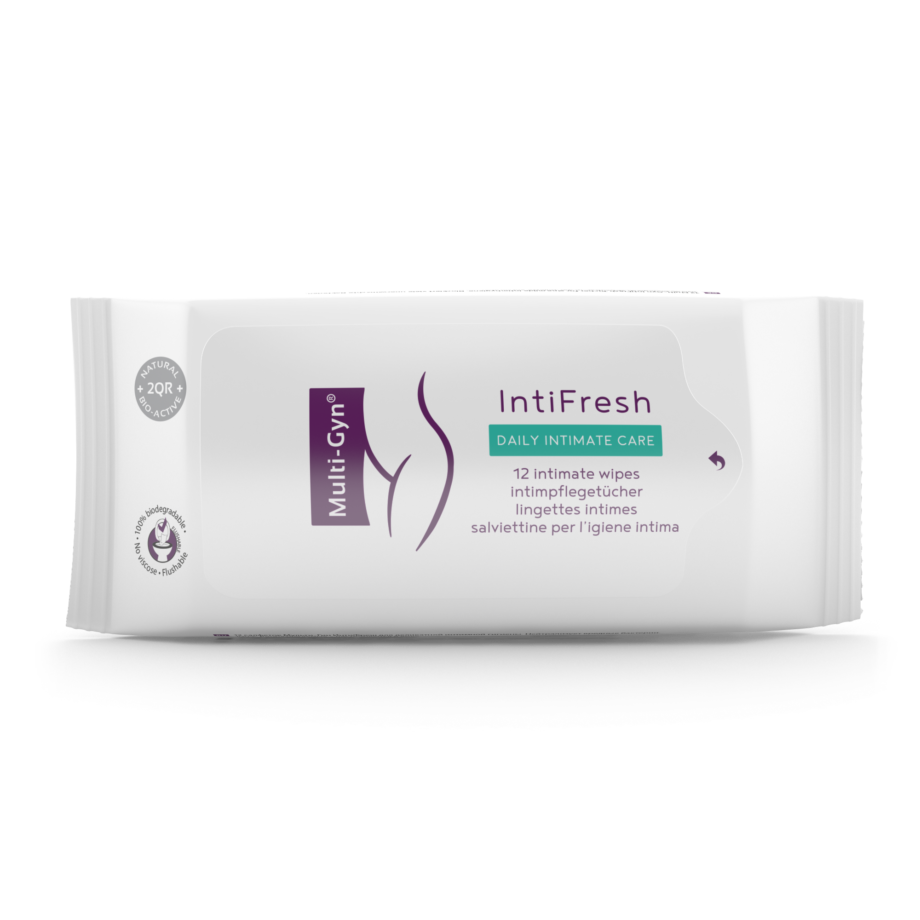
Multi-Gyn IntiFresh
Wipes for a mild intimate hygiene
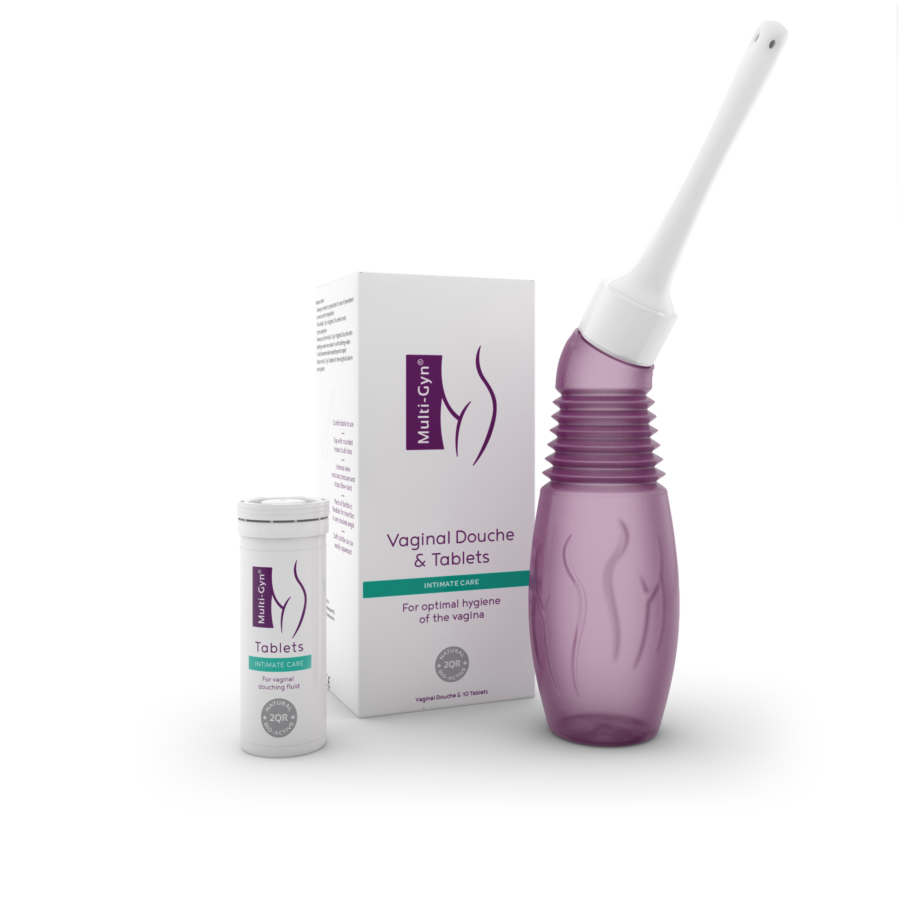
Multi-Gyn Douche & Tablets
For optimal hygiene of the vagina
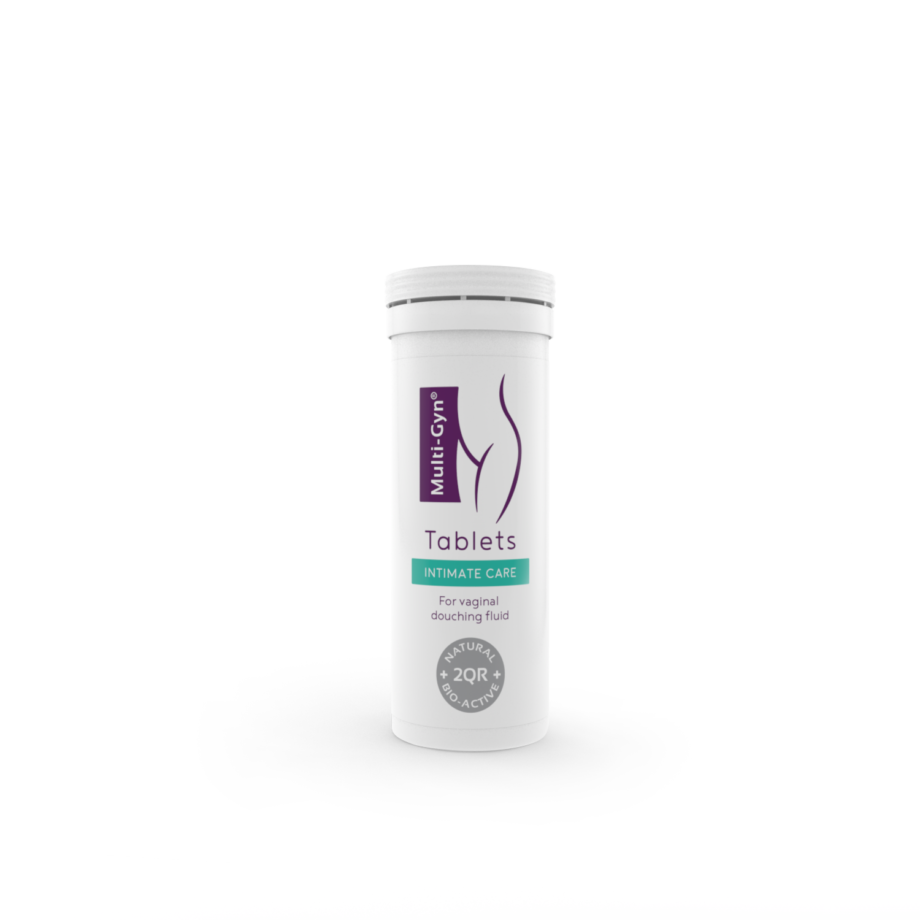
Multi-Gyn Tablets
For vaginal douching fluid
Prevention and health tips
Vaginal hygiene is not only about washing. There are many factors that can change the microbial balance, like sexual activity, wearing synthetic underwear, or removing pubic hair. We can’t always avoid these factors but should be aware of them in order to pay more care to our vaginal area when they need it. There are different ways of removing pubic hair, and their effects are different. What most of them have in common is causing itching and irritation in the intimate area. Trimming is the least irritative method of hair removal. If irritation occurs, using a natural product with a soothing and cooling effect can help. Sexual intercourse can change the pH of the vagina and consequently lead to an imbalance of the bacterial flora, and it is therefore a good idea to wash your intimate area after sex. Avoid wearing synthetic pants and use cotton underwear which will allow your skin to breathe. It is best to sleep without any underwear. When wiping yourself after going to the toilet, always wipe from front to back, in order to avoid bowel bacteria entering your vagina. During your periods, change tampons, sanitary pads or menstrual cups often.
Pay close attention to the health of your vagina
Be aware that your hormones can have a strong impact on your vaginal flora. Infections and discomforts occur even in women who take good care of their intimate region. If you feel sore, irritated or itchy, you should visit your doctor or gynaecologist.
Want to know more?

Read article
8 tips to prevent intimate problems
Take a look at some of the most important tips for vaginal hygiene

Read article
Difference between bacterial vaginosis and a yeast infection
Bacterial vaginosis and a yeast infection are the most common vaginal infections. Learn more about the differences in causes, symptoms and treatment!

